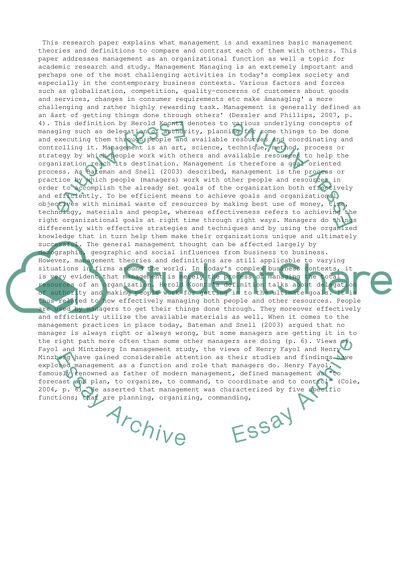Cite this document
(“Management. Views of Fayol and Mintzberg Essay Example | Topics and Well Written Essays - 1500 words”, n.d.)
Management. Views of Fayol and Mintzberg Essay Example | Topics and Well Written Essays - 1500 words. Retrieved from https://studentshare.org/management/1461530-what-is-managementyie-your-answer-should-compare
Management. Views of Fayol and Mintzberg Essay Example | Topics and Well Written Essays - 1500 words. Retrieved from https://studentshare.org/management/1461530-what-is-managementyie-your-answer-should-compare
(Management. Views of Fayol and Mintzberg Essay Example | Topics and Well Written Essays - 1500 Words)
Management. Views of Fayol and Mintzberg Essay Example | Topics and Well Written Essays - 1500 Words. https://studentshare.org/management/1461530-what-is-managementyie-your-answer-should-compare.
Management. Views of Fayol and Mintzberg Essay Example | Topics and Well Written Essays - 1500 Words. https://studentshare.org/management/1461530-what-is-managementyie-your-answer-should-compare.
“Management. Views of Fayol and Mintzberg Essay Example | Topics and Well Written Essays - 1500 Words”, n.d. https://studentshare.org/management/1461530-what-is-managementyie-your-answer-should-compare.


